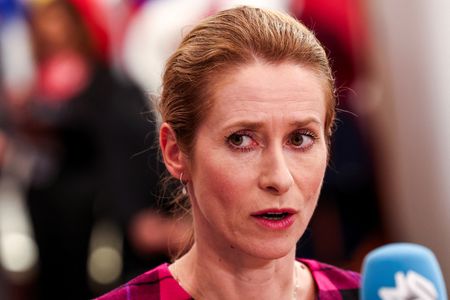By William Schomberg
LONDON (Reuters) -Britain borrowed more than expected in June as a jump in inflation pushed up the government’s debt costs, adding to speculation about the need for new tax hikes by finance minister Rachel Reeves later this year.
Public sector net borrowing totalled 20.7 billion pounds ($27.9 billion) last month, official data showed on Tuesday, above a median forecast of 16.5 billion pounds in a Reuters poll of economists, and the second highest amount for June on record.
The borrowing was also bigger than expected by Britain’s budget watchdog, which forecast June borrowing of 17.1 billion pounds when it published its outlook in March.
Since then, a strong inflation reading in April had the effect of pushing up inflation-linked government bond payments.
Tuesday’s data from the Office for National Statistics showed the government’s debt interest bill was 16.4 billion pounds in June, the third highest since records began in 1997.
Having pushed up taxes by the most in decades last year, Reeves is expected to raise them again in a budget statement towards the end of 2025 in order to remain on track to meet her own targets for fixing the public finances.
That job was made harder this month when the government dropped its plans to reduce the welfare bill in the face of stiff opposition within the ruling Labour Party. Slow economic growth is also adding to Reeves’ problems.
She has said she will balance day-to-day spending with tax revenues by the end of the decade.
The latest ONS data showed the current budget was in deficit by 44.5 billion pounds in the first three months of the financial year that began in April – 5 billion pounds more than expected by the Office for Budget Responsibility watchdog.
“There is no denying that fiscal developments have been very disappointing so far this financial year and Rachel Reeves will almost certainly be investigating potential revenue raising measures,” said Philip Shaw, chief UK economist at Investec.
Reeves will probably need to raise taxes by 20 billion pounds – about half the size of last year’s package – with future increases in defence spending only likely to add to the bill further ahead, said Rob Wood, chief UK economist at Pantheon Macroeconomics.
Darren Jones, a deputy to Reeves at the Treasury, said the government remained committed to its fiscal rules.
Over the first three months of the fiscal year which began in April, Britain borrowed 57.8 billion pounds, 15% more than in the same period last year and the third-highest April-to-June deficit on record.
The figure was back in line with the year-to-date forecast by the OBR, whose projections underpin the government’s tax and spending plans, after two months of lower-than-expected borrowing by the government.
The public finances have been aided by Reeves’ increase in social security payments by employers. Compulsory social contributions – mostly National Insurance Contributions – jumped by 18% in the April-to-June period to 48 billion pounds.
($1 = 0.7425 pounds)
(Writing by William Schomberg; Editing by Kate Holton, Andrew Heavens and Hugh Lawson)








